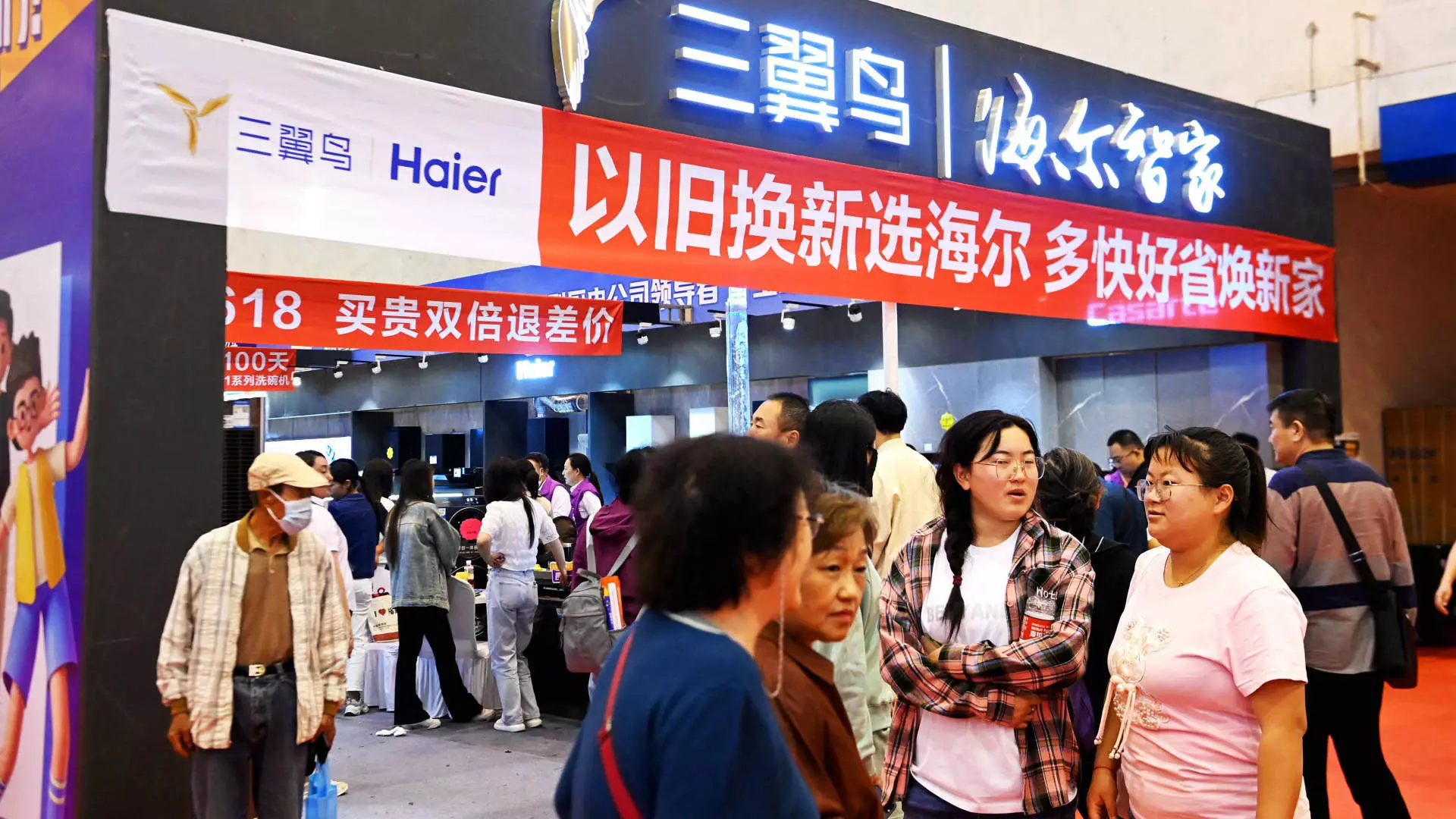China recently announced a significant increase in subsidies to support specific consumer purchases, signaling a shift towards boosting domestic consumption. The government allocated the equivalent of 300 billion yuan ($41.5 billion) in special bonds towards trade-ins and equipment upgrades, expanding an existing program. According to Ding Wenjie, an investment strategist at China Asset Management Co., the new policy provides larger allowances and clearly specifies the sources of funds. The central government’s higher contribution ratio of 9:1 is expected to expedite policy execution, covering a wider range of products including trucks, machinery, home decoration, and smart home appliances in addition to autos and home appliances.
Impact on Different Sectors
The policy is projected to benefit sectors such as autos, industrials, and home appliances, with subsidies for new energy and traditional fuel-powered vehicles doubling to 20,000 yuan and 15,000 yuan per car, respectively. Specific subsidies are also outlined for home renovations and purchases of refrigerators, washing machines, televisions, computers, air conditioners, and other home appliances, with each consumer eligible for subsidies of up to 2,000 yuan per category. Following the announcement, major Chinese home appliance stocks like Midea, Gree, and Haier experienced notable gains compared to the broader mainland China indexes.
The 300 billion yuan ultra-long bond issuance, as part of a larger 1 trillion yuan ultra-long bond program, garnered positive reactions from analysts. Morgan Stanley analysts highlighted that the amount exceeded market expectations and expected equipment stocks to respond favorably to the subsidies. Inovance was identified as one of the companies likely to benefit the most from the increased subsidies for autos and home appliances. Despite the sluggish retail sales growth, Chinese authorities have opted for targeted subsidies over cash handouts, emphasizing the importance of developing domestic tech capabilities.
While the increased subsidies are anticipated to boost household consumption and corporate investments, the overall impact on GDP growth may be limited. Tao Wang from UBS Investment Bank noted that the subsidies could contribute to China’s household consumption and corporate capex, but the effect on GDP growth might be restrained. The latest consumption measures align with the objectives set during China’s Third Plenum, focusing on long-term economic policies. A forthcoming Politburo meeting is expected to provide more immediate economic directives, emphasizing the importance of improving people’s livelihoods and stimulating consumer spending for China’s modernization.
China’s enhanced subsidies for consumer purchases reflect a targeted approach to invigorate domestic consumption and support key sectors like autos, industrials, and home appliances. The government’s emphasis on building domestic tech capabilities underscores a strategic shift towards sustainable growth and modernization. While the impact of the subsidies on GDP growth may be moderate, the focus on stimulating consumer spending aligns with China’s economic development goals and signals a proactive effort to support market vitality.

